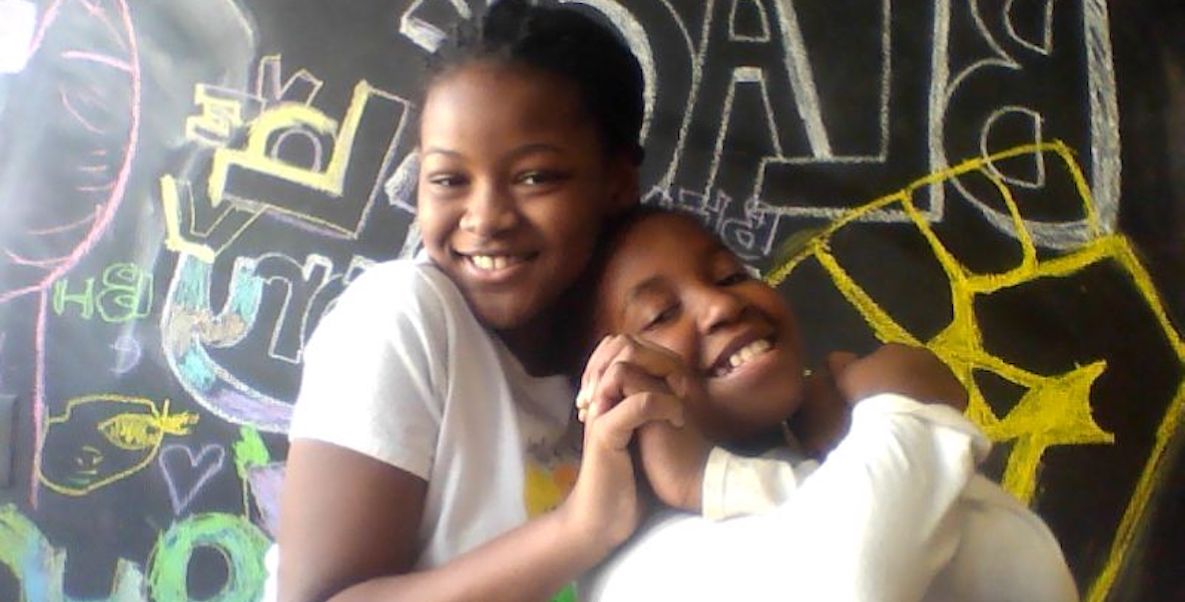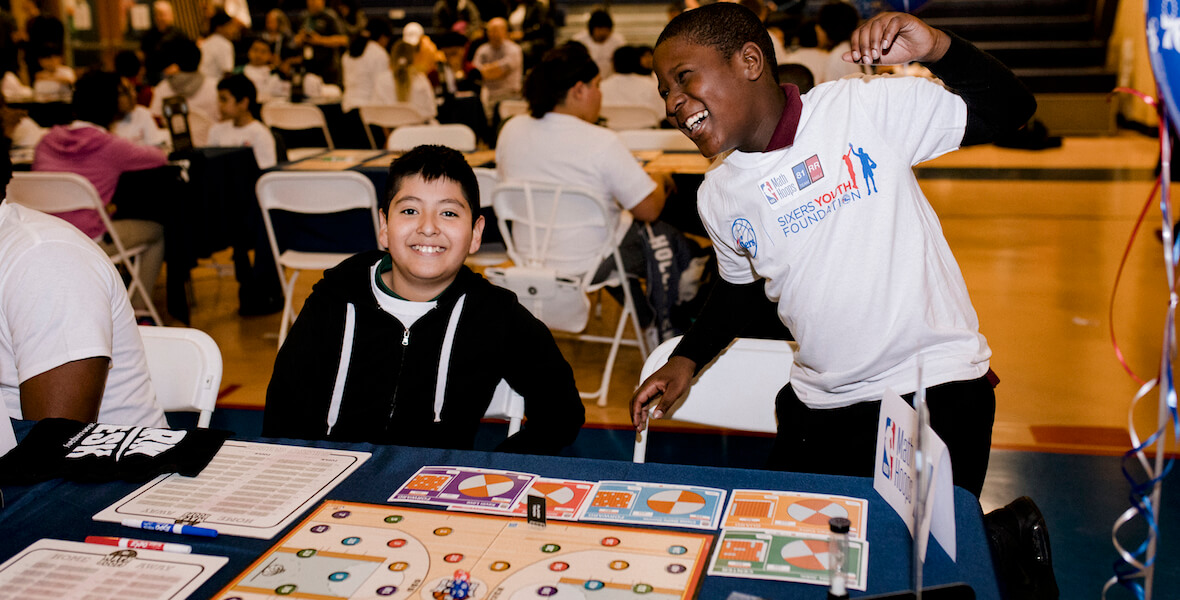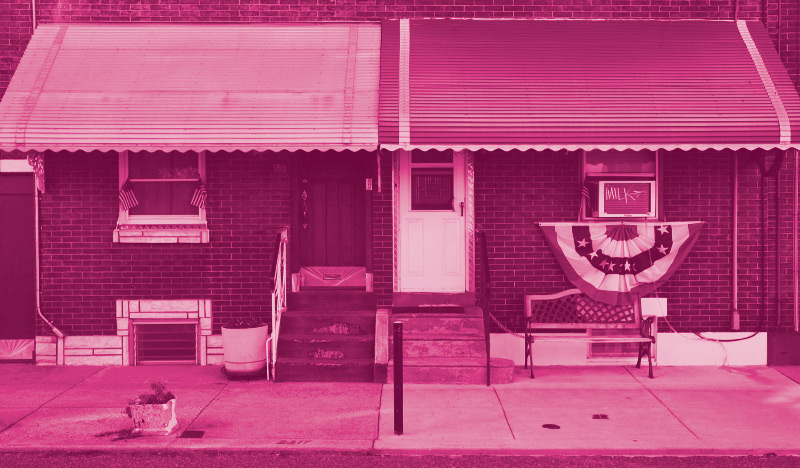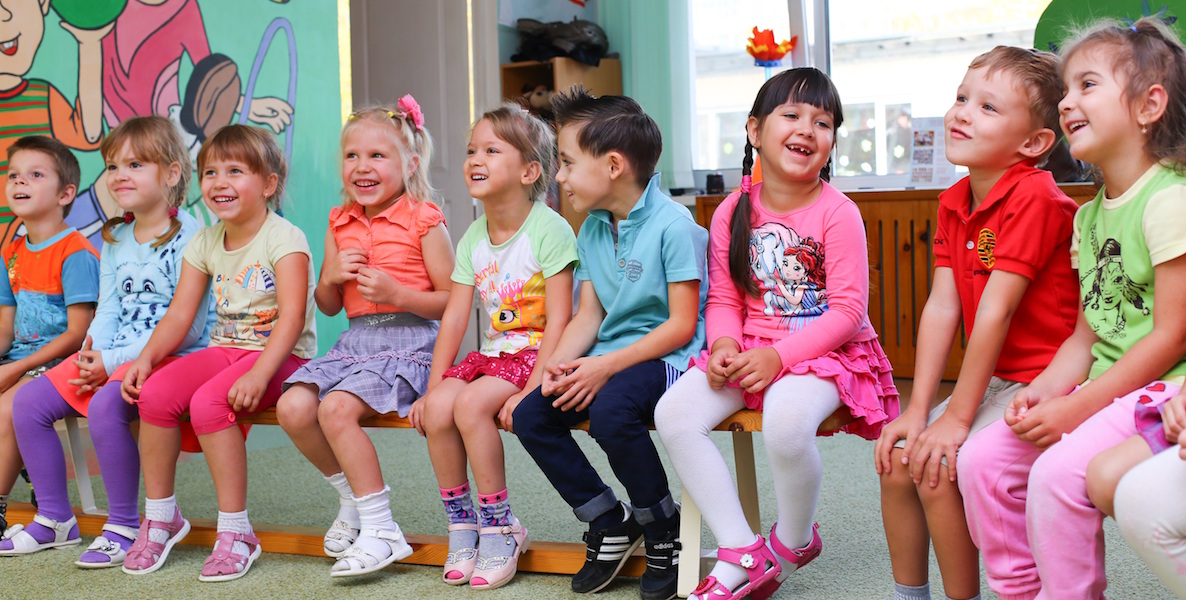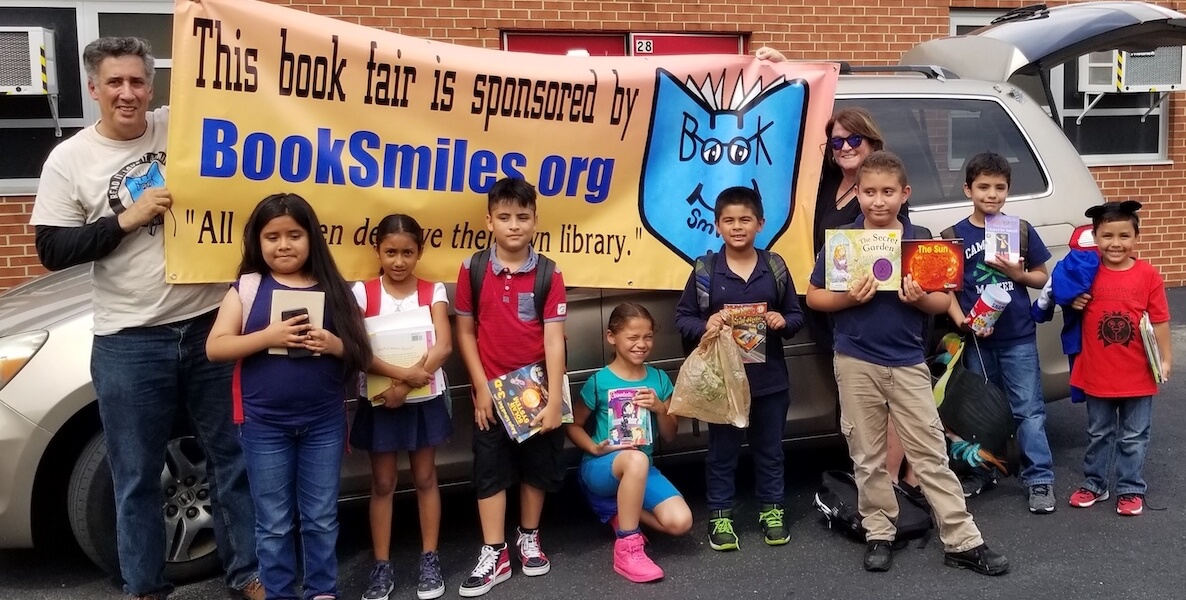As a teacher at John H. Taggart School, David Hensel would scour used bookstores, looking for copies of books his kids would like. Graphic novels? He’d buy them. Picture books? Bilingual stories? Books with characters who were little girls? Kids of color? He kept his eyes peeled. He’d hit up library sales and garage sales; sometimes he’d drive around the city from book bank to book bank, looking for reading materials to take back to school for the students.
This was five years ago, when Hensel was deep in the process of trying to build a lending library for his preK-8 school. Like most Philly schools, Taggart had lost its library years before in the face of the city’s draconian budget cuts—and not only was Hensel looking to remedy that, but he was also trying to help build up the school’s classroom libraries, so students would have constant access to books.
“I actually got really good at being able to get books,” he says. “But it was time-consuming and expensive.”
In dipping into his own pocket to get the goods for his students, Hensel was far from alone: In 2018, the Department of Education reported that a staggering 94 percent of public school teachers in America spend money on classroom supplies without reimbursement—about $479 a year, on average.
“In Philly, teachers get a $100 allotment to spend a year on school supplies,” Hensel says. That’s for all school supplies, not just reading materials.
“In Philly, teachers get a $100 allotment to spend a year on school supplies,” Hensel says. That’s for all school supplies, not just reading materials. (Currently, K-8 teachers can deduct a meager $250 a year on their taxes for out-of-pocket expenses.) “But if a kid likes a book, and you know there’s a part two and three, as a teacher, of course you’re running out to get those books to keep them reading.”
In September of 2019, though, everything changed for Hensel—now Taggart’s dean of students—and his ongoing quest for great books. In fact, things changed for many teachers in their ongoing quests for books, all thanks to an English teacher named Larry Abrams and his nonprofit, BookSmiles.
Spreading the book-wealth
BookSmiles gives out books by the hundreds to teachers in Philly and South Jersey, particularly teachers in underserved communities and Title 1 schools. At his Cherry Hill-based book bank, educators can browse for books they need, and leave with boxes—sometimes truckloads—of new and gently used books for their kids. Whenever they want. Free of charge.
“At first, when you hear about BookSmiles, you think it’s too good to be true,” says Lisa Feinstein, a literacy coach at James H. Johnson Elementary School in Cherry Hill. “The first time I went, it was like a yard sale, where you get 10 books, and think ‘Yay, great!’ But then you’ve got Larry saying, ‘No, take more, take more, take more. Don’t leave here without 150 books!’”
Truth is, even Abrams didn’t envision this magical level of largesse when he first started collecting books to give away. An English teacher of 20-plus years, Abrams was simply trying to help out one of his students at South Jersey’s Lindenwold High, a mother of a toddler who told him that she didn’t read to her baby.
“She didn’t really have books at home,” Abrams says. He had already donated to the library all of his kids’ old books; he had none to give her. So he put out a call to his friends on social media. “We hit like 1,000 books,” he says. “They just came rolling in. And it was clear that there was this need, and this wonderful product that you only had to ask people for.”
![]() Abrams was already more than familiar with the need for books. He’d seen firsthand what having access to reading materials could mean for a kid. He’d noticed, for instance, that the students he’d taught at a school in an area with relatively high levels of need were no less brilliant than the kids he’d taught in a more affluent area—but that their reading levels didn’t reflect that truth. He’d also read a story in the Atlantic —this was in 2016—about the gut-wrenching disparity in access to books between middle-class communities and impoverished ones, a disparity repeatedly linked to later gaps in academic and socioeconomic outcomes.
Abrams was already more than familiar with the need for books. He’d seen firsthand what having access to reading materials could mean for a kid. He’d noticed, for instance, that the students he’d taught at a school in an area with relatively high levels of need were no less brilliant than the kids he’d taught in a more affluent area—but that their reading levels didn’t reflect that truth. He’d also read a story in the Atlantic —this was in 2016—about the gut-wrenching disparity in access to books between middle-class communities and impoverished ones, a disparity repeatedly linked to later gaps in academic and socioeconomic outcomes.
Around that time, he conducted some informal surveys in his classes: Raise your hands, he’d say, if you grew up with books in the house, if you grew up with people reading to you. “In the honors class,” he says, “almost all the hands went up.” In his other classes, it was more like two kids who raised their hands, he says. “And guess what? Who do you think were the two kids who were pullings Bs and As in that class?”
In the “constellation” of factors that might be holding some kids back, he says, it was very clear to him that one controllable factor was simply “putting books into kids’ houses when they’re babies. Just filling them up with books.”
It all swam around in his head—the kids he knew, the Atlantic story, what he’d learned as a dad and a teacher about the benefits of growing up around books. “And I had this idea of transferring book-wealth”—book-wealth, a term he made up—“from high-end areas into places where there was a lot of need. I thought: We can fix this.”
“The first time I went, it was like a yard sale, where you get 10 books, and think ‘Yay, great!’ But then you’ve got Larry saying, ‘No, take more, take more, take more. Don’t leave here without 150 books!’”
Of course, book-wealth isn’t just for helping kids do well in school. “Power is important,” Abrams says. “And being able to empower people who might not have power, per se, is really important. We can do that by giving books to kids, and enabling all children to build their own libraries.”
And so first there were books for one student and her child. And then there were 1,000 books—all donations. And then everything started snowballing. The books took over his classroom, and then space at his house. “It became a Hoarders episode in my garage,” he says.
The transition from project to nonprofit
It was an informal set-up, at first. Did local families or teachers need books? They could have them. Then, about a year in, word got out, and people wanted to give him money to support the cause. So he turned his project into a nonprofit; he spoke at conventions; he rented a storage locker to hold all the books he’d turn around and give away. He was handing out 2,000 books a month. Then 5,000. Then 7,000.
![]() Then, in September of 2019, with the help of a donation from the Townsend Press Foundation, Abrams moved his books to a 1,000-square-foot warehouse in Cherry Hill—the BookSmiles book bank.
Then, in September of 2019, with the help of a donation from the Townsend Press Foundation, Abrams moved his books to a 1,000-square-foot warehouse in Cherry Hill—the BookSmiles book bank.
“Now,” he says, “we’re equipped to distribute 26,000 books a month, easily.” His audience is teachers, mostly— “some of the most creative, most effective distributing agents that you could ever think of”—but he also sees some nonprofits coming in to collect books, too, like the Philadelphia Department of Family Services.
These seekers of books can sign up for designated times, then drive up, browse, and take as many books as they want. They’re asked to make a small annual contribution—a $25 nominal donation, Abrams says, “to keep the lights on”—in exchange for the chance to handpick as many books as they want, as often as they want.
“I started bringing boxes of books back to teachers I work with, and setting up books outside my office,” Feinstein says. “And the look on kids’ faces when you hand them a book! They say, ‘Well, do I have to bring it back? Wait, I can just keep it? Can I have more than one?’ And you get to say, ‘You can have as many as you want.’” The teachers, she adds, have the same reaction—Wait, what? Where’d you get these books? “They don’t get it until they go experience it,” she says.
“We give them boxes to fill up,” Abrams says. “We have Spanish language books, we have books with diverse characters, we have graphic novels.” Science books, language books, math books, fiction serials, hard-cover pictures books … the list goes on. “We work really hard to have high-quality books because I think it’s insulting to give teachers and kids garbage that should have been recycled years ago,” he says.
Meeting needs in pandemic times
BookSmiles’s new and gently used books, generally aimed at audiences from babies through sixth graders, come from a multitude of sources: Book drives from local groups and individuals, donations from publishers and bookstores, and individual donations, too.
 Abrams has also set up book-donation stations—big, cheerfully decorated lidded recycling bins—in towns all over the region: Cherry Hill, Haddonfield, Marlton, Penn Valley, various spots on the Main Line and more.
Abrams has also set up book-donation stations—big, cheerfully decorated lidded recycling bins—in towns all over the region: Cherry Hill, Haddonfield, Marlton, Penn Valley, various spots on the Main Line and more.
So far, Abrams estimates that the BookSmiles team—that is, himself, one part-time staffer, and swarms of volunteers—has served well over 1,000 teachers and administrators, and given away some 400,000 books. (Worth noting, maybe, is that Abrams manages this while still teaching full-time and that he treats BookSmiles as a volunteer gig—he takes no salary.)
“I had this idea of transferring book-wealth”—book-wealth, a term he made up—“from high-end areas into places where there was a lot of need. I thought: We can fix this.”
“What’s amazing about Larry is how he keeps looking for—and finding—ways to reach different kids with books,” Feinstein says. At her school, for instance, Abrams was also happy to supply the school with reading materials for a (free) book vending machine. He’s helped educators like Hensel stock their libraries with specific requests. And when Covid-19 shut down the schools, he pivoted to help put together grab-and-go bags full of fresh books for students, handed out at food distribution sites.
![]() Speaking of the pandemic: It’s hard to teach kids learning to read over the computer, Hensel says. Books are vital. “And access to the new books that kids want is usually through the school library or the classroom library or the local library,” Hensel says. “Without those things, it can get really expensive to keep giving kids books. That’s why it’s critical to get the word out about BookSmiles.”
Speaking of the pandemic: It’s hard to teach kids learning to read over the computer, Hensel says. Books are vital. “And access to the new books that kids want is usually through the school library or the classroom library or the local library,” Hensel says. “Without those things, it can get really expensive to keep giving kids books. That’s why it’s critical to get the word out about BookSmiles.”
It’s a sentiment Abrams echoes. He worries that Covid-19 has exacerbated the lack of book access. He desperately hopes teachers find and use his book bank, which has adopted the proper Covid-19 precautions, and is still up and running on select hours every week.
Though his long-term goals involve expanding—he’d love a van to make deliveries; he’d like bigger book bank closer to or in Philadelphia, where a great deal of his “shoppers” come from—his immediate goal is to push through the pandemic, to spread some book-wealth to as many kids as possible, and get word to as many teachers—those creative, invested distributing agents— as he can.
“I don’t want my fellow teachers paying crazy money out of pocket—and they still do it because they don’t know about us yet.”
The Citizen is one of 20 news organizations producing Broke in Philly, a collaborative reporting project on solutions to poverty and the city’s push towards economic justice. Follow the project on Twitter @BrokeInPhilly.



